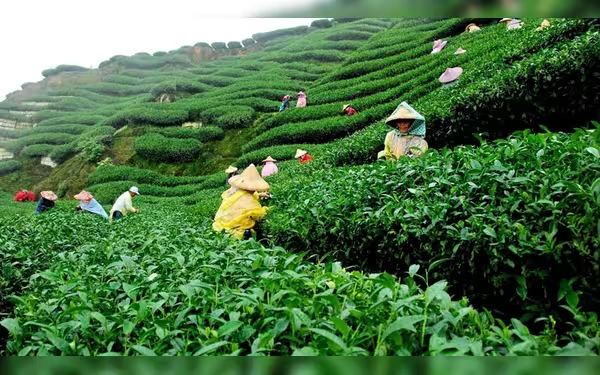Saturday, October 5, 2024 06:09 AM
Khyber Pakhtunkhwa's Tea Cultivation Potential Unveiled
- 271,406 acres of land suitable for tea cultivation identified
- Regions like Mansehra, Dir Upper, and Swat ideal for tea cultivation
- Tea cultivation in Khyber Pakhtunkhwa can meet 75% of Pakistan's demand
 Image Credits: Daily Times
Image Credits: Daily TimesRecent survey reveals Khyber Pakhtunkhwa's potential in tea cultivation, meeting 75% of Pakistan's demand. Government support crucial for sustainable growth.
Tea cultivation in Pakistan, particularly in Khyber Pakhtunkhwa, is gaining attention as a promising venture, as revealed by a recent GIS-based survey. A meeting held at the Agricultural University Peshawar delved into the possibilities of tea cultivation in the region. The discussions highlighted the current tea demand in Pakistan, which currently stands at 252,000 tons annually and is expected to rise to 317,000 tons by 2031.
The survey findings unveiled that there are around 271,406 acres of land suitable for tea cultivation, with a significant portion located in Khyber Pakhtunkhwa. Areas like Mansehra, Dir Upper, Dir Lower, Swat, and others have been identified as ideal for tea cultivation. These regions have the potential to yield 190,000 tons of tea per year, meeting a substantial 75% of the country's current demand.
The Special Assistant to Khyber Pakhtunkhwa CM on Industries commended the technical study conducted by an international organization and stressed the significance of nurturing the tea cultivation sector. The provincial government is committed to leveraging the study's insights effectively and will collaborate with agricultural authorities to implement supportive measures for tea cultivation in the identified areas.
Moreover, it was highlighted that a comprehensive study by the same international organization could also benefit trout fish breeding, hinting at broader agricultural development prospects in the region.
The potential for tea cultivation in Khyber Pakhtunkhwa presents a promising opportunity to meet the growing demand for tea in Pakistan. With strategic planning and support from the government, the region can emerge as a significant contributor to the country's tea production. This initiative not only holds economic promise but also underscores the importance of sustainable agricultural practices for future generations.













